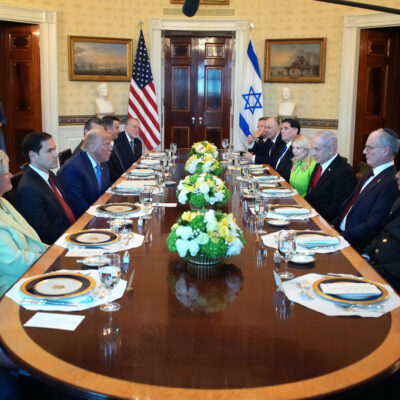Recent Issues

Daily Kickoff: Sen. Lindsey Graham’s plan to stop Iran + Leonard Cohen and the Yom Kippur War
March 29, 2022
👋 Good Tuesday morning!
Sixty-eight senators — 37 Republicans and 31 Democrats — signed onto a letter led by Sens. Ben Cardin (D-MD) and Rob Portman (R-OH) urging Secretary of State Tony Blinken to work to shut down the U.N. Human Rights Council’s permanent...









































